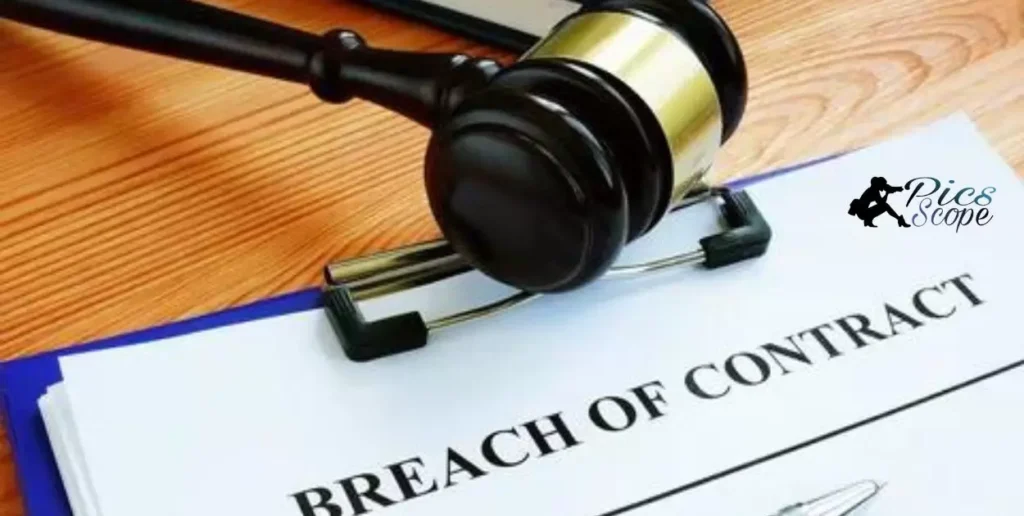A photographer is a person who takes photographs using a camera. They capture images of people, events, places, objects, and more. Photographers can work in many settings such as weddings, portrait studios, news organizations, and advertising agencies.
Can you sue a photographer for not giving you photos? This is a common question that arises when a client does not receive the photographs they contracted and paid for from their photographer. Issues between photographers and clients often end up in court over breach of contract and failure to deliver services or products.
If a photographer fails to provide photographs as outlined in a contract or agreement, the client may be able to file a lawsuit against them. Reasons to sue could include if the photographer goes out of business, loses the photos, provides low-quality photos, or simply refuses to hand over photos that were paid for. The client would need to prove there was a verbal or written agreement that was breached.
What is a photography contract?
A photography contract is a legally binding agreement between a photographer and client that clearly outlines the services to be provided, fees, usage rights, and other key terms related to a photo shoot or project. These contracts protect both parties by managing expectations, avoiding misunderstandings, and giving recourse if either party fails to fulfill their obligations.
Key components include identification of the parties, detailed scope of work, payment timeline and amounts, licensing terms, copyright ownership, cancellation policies, and liability limitations. Having a comprehensive written contract is crucial for photographers to secure their creative rights and get properly compensated.
For clients, a clear photography contract gives certainty on what they will receive, when, and how the photos can be used. This allows them to plan and budget accordingly. Spelling out contingency plans for things like weather delays or unsatisfactory photo outcomes also reduces anxiety when commissioning important photography work like weddings or advertising campaigns.
What rights do photographers have?
Unless stated otherwise in a contract, photographers inherently hold the copyrights to all photos they take. This gives them exclusive rights to reproduce, publicly display, distribute, and create derivative works from those images. Clients who hire photographers are purchasing limited usage rights rather than full ownership of the photos themselves. These rights need to be clearly defined in a photography contract.
Common licensing options photographers can grant include different media types (online, print, etc.), geographical regions, time durations, sizes/resolutions, and more. Any uses not expressly permitted are still reserved solely for the photographer. This allows them to license the same images multiple times for different purposes without losing control.
Even if clients have broad usage terms, typical photography contracts still affirm the photographer retains overall copyright ownership. This provides lasting protection of their creative work.
When can you sue a photographer?
In general, clients can sue photographers for breaching the terms of their photography contract. Common reasons include failing to deliver photos by the agreed deadline with no valid excuse, delivering unsatisfactorily low-quality photographs, granting usage rights they did not have, losing or damaging photos through negligence, or other contract violations.
First it is advisable to attempt good-faith negotiations for reasonable extensions, refunds, or other remedies. Reputable photographers will try to make things right for reasonable client demands or unforeseen circumstances. If negotiations fail and the contractual breaches are substantial enough to cause real damages, then filing a lawsuit may be warranted.
The time limit to sue is determined by state statutes of limitations – often around 2-6 years for written contracts. Suing should not be taken lightly due to the costs, time, and risks involved. Using alternative dispute resolution methods like arbitration may also be an option.
But ultimately if negotiations and mediation fail, suing for breach of contract may be the only recourse left. The photography contract terms would determine the merits of any photography-related lawsuit.
What constitutes a breach of contract in photography?

A breach of contract in photography occurs when either the photographer or the client fails to fulfill the obligations and terms outlined in their agreement. Common examples include the photographer failing to deliver photos by the timeline specified or the client failing to pay the agreed-upon fees.
Determining what counts as a material breach will depend on the specifics of each contract. Factors like the nature of the unfulfilled term, its centrality to the agreement, and the resulting harm to the other party are considered. For instance, a photographer never delivering final edited photos would likely be a material breach.
What delivery timelines are common in photography contracts?
Photography contracts typically specify a delivery timeline or window for clients to receive their final, edited photos. Common timeframes range from 4-8 weeks after the shoot for portrait sessions to 6-12 weeks for weddings and other complex events. Quick turnarounds may be outlined for photos needed urgently for press or marketing.
Setting clear photography delivery expectations upfront is crucial. Contracts should account for factors impacting timelines like the number of images, editing complexity, photographer’s workload, and seasons with more bookings. Leaving the timeline vague or open-ended is risky and can lead to client confusion and photographer overwhelm. A Photographic Atlas Of Developmental Biology
What recourse exists for late photography deliveries?
If a photographer fails to meet the delivery deadline in their contract without valid excuse, the client has several options to seek recourse. The first step is communicating clearly in writing to establish if there are understandable circumstances for the lateness and agree to a new delivery date.
If there is no response or continued failure to deliver, the client can threaten or initiate legal action like small claims court to recover damages tied to the late delivery. Damages could include print/advertising costs the client incurred expecting the photos. Courts rarely award damages for emotional distress or legal fees in basic breach of contract cases.
Finally, if unsatisfied with the photographer’s response and seeking compensation, terminating the contract and demanding a partial or full refund of deposits/payments made is another photography client recourse. This route avoids lengthy legal processes.
When does a photographer’s failure to deliver photos become actionable?
A photographer’s failure to deliver contracted photos generally becomes legally actionable when it constitutes a material breach of the agreement made. As every photography contract and situation differs, determining when non-delivery passes into actionable territory isn’t always straightforward.
Some photography industry experts argue that clients have valid grounds to take legal action if photos are delayed beyond 30 days later than the latest specified delivery date without reasonable explanation. Contracts with looser timelines may make it harder to prove material breach based on lateness alone.
The client must decide if pursuing legal remedies against the photographer is worth the time, costs, and effort based on their specific circumstances and how critically they need the missing photos. Seeking alternative resolutions like a refund or credit is sometimes more prudent.
What legal remedies exist against photographers?
There are several legal remedies that a client can pursue against a photographer who fails to deliver photos as outlined in the contract. The most common remedies are monetary damages, specific performance, and injunctive relief. Monetary damages allow the client to recoup financial losses from the photographer’s breach of contract.
Specific performance is a court order requiring the photographer to deliver the photos as originally agreed. Injunctive relief prevents the photographer from using the undelivered photos in other projects.
In cases of egregious contract violations, clients can even make claims of copyright ownership against the photographer’s work. This tactic rarely succeeds in court since copyright initially vests with the creator of the work, which is nearly always the photographer in a client-photographer relationship.
Can you claim photography copyright ownership in court?
Attempting to claim copyright ownership against a photographer in court is an uphill legal battle for clients. Copyright law grants ownership rights to the original creator of a work, which in photography contracts is the photographer themselves.
To override this, clients must prove the photos were “works made for hire”, meaning the client specifically commissioned the photos and the contract states they solely own the resulting copyright.
Courts set a high bar for works made for hire claims, so clients rarely prevail on such arguments. Photographers also have strong fair use rights allowing them to display photos for promotional purposes. Ultimately, clients have limited leverage to claim copyright ownership of photos they hire photographers to shoot.
What damages can you seek from a photographer in court?
If a photographer breaches the contract by not delivering photos, common monetary damages clients can recover in court include any prepaid fees or deposits, as well as any additional costs incurred to hire a replacement photographer.
Courts may also award monetary damages to compensate for emotional distress or reputational harm if missing photos ruined the memories or public image benefits clients hoped to gain. Punitive damages that punish the photographer as an example to others are rare in basic breach of contract cases.
Overall, the potential damages clients can be awarded against photographers are typically limited to recovering financial losses directly incurred from the undelivered photos. Non-economic damages are harder to quantify on top of being capped under liability release clauses found in most photography contracts.
How often do clients sue photographers over photo delivery disputes?
Lawsuits against photographers remain relatively rare, even in cases of incomplete or missing event photo deliveries. In a survey conducted by the Professional Photographers of America, only around 3% of photographers had been sued by a client in the past 10 years.
Small claims filings are more common, but overall most photographer-client disputes get resolved through direct negotiations for refunds, credits, or delivery extensions. Out-of-court mediation also helps resolve many cases without needing formal litigation.
When lawsuits do occur, they usually involve large sums of money, like multi-thousand dollar wedding photo packages. For smaller scale shoots, hiring lawyers and going to court rarely makes economic sense for clients compared to negotiated resolutions. So while disputes happen regularly, photographer lawsuits are still infrequent occurrences in the big picture.
Can a photographer claim technical issues as a defense?
Photographers may be able to claim technical difficulties as a defense against breach of contract lawsuits if issues like camera or equipment failure, data loss, or processing problems prevented them from delivering photos on time.
They would need to show evidence like service records, corrupted files, or other documentation proving these technical problems were beyond their control. The photographer also must prove they took reasonable steps to remedy issues and deliver photos promptly after resolving technical problems.
Mere claims of technical issues without supporting evidence are unlikely to persuade a court. Judges may see overly generic technical problems cited as a defense as a sign the photographer did not properly manage known equipment risks. Photographers who routinely fail to deliver due to technical issues may be seen as negligent.
What if photos are permanently lost or damaged?
If photos are permanently lost or damaged after the shoot, courts may consider this force majeure and dismiss breach of contract claims against the photographer. Photographers may still be liable for any advance payments the client made for undelivered work.
Courts may require photographers to demonstrate they took reasonable care in storing and protecting photos after shoots. For example, having backup systems, data redundancy, and contingency plans in case of loss or damage. Photographers who fail to implement basic protections against photo loss may still face negligence claims.
Permanent loss or damage scenarios also depend on the timing and causes. Courts may not dismiss lawsuits if photos existed for some time after the shoot before unexpected loss or damage later on. In such cases, clients can more credibly claim the photographer should have already delivered the agreed-upon photos.
Can force majeure release a photographer from delivery obligations?
Courts may rule that unexpected events like natural disasters, political instability, equipment seizures, or model unavailability constitute force majeure releasing photographers from timely delivery obligations.
Photographers citing force majeure must prove the events were reasonably unforeseeable, made delivery impossible per the contract terms, and that they took steps to mitigate delays. Photographers also need to promptly notify clients of force majeure events and make good faith efforts to deliver photos as soon as reasonably possible even if after the original deadline.
Open-ended force majeure clauses are disfavored by courts, so photographers should specify qualifying events like floods, civil unrest delaying travel, etc. They should also include force majeure notice procedures and steps both parties might take to enable photo delivery after an unexpected event outside their control.
What alternatives exist to suing your photographer?
There are several alternatives that exist to suing your photographer in court. The first option is negotiation – you can try to work out the issue directly with the photographer through discussions of refunds, reworks, or other remedies. This allows you to come to a mutual agreement without getting lawyers involved.
If direct negotiations fail, mediation is another alternative. A neutral third-party mediator can help facilitate discussions between you and the photographer to try to find middle ground. Mediation is usually faster, cheaper, and less adversarial than going to court. Services like the American Arbitration Association offer mediation for consumer disputes with photographers.
Can you negotiate extensions or refunds from photographers?
In many cases, photographers may be willing to negotiate extensions or partial refunds as an alternative to legal action. This is especially true if the photographer wants to maintain their professional reputation. You have the most leverage to negotiate if services were not delivered as contracted.
When negotiating, focus the discussion on objective criteria like missed deadlines, unsatisfactory quality, or services not rendered. Frame your requests reasonably – for example, ask for a 25% refund for late delivery rather than a full refund. Come prepared with documentation and be willing to compromise. If handled professionally, photographers often want to make things right with clients.
Do credit card chargebacks apply to photography services?
Credit card chargebacks can potentially apply to photography services in cases where goods or services were either not delivered at all or were “significantly not as described”. So if you paid a deposit and got no photos, or the quality was far below what was promised, you may be able to dispute the charges with your credit card company.
The exact criteria depend on the card issuer. Visa and Mastercard allow chargebacks up to 120 days from the original transaction date if the services were not received at all. For quality disputes, quick action is required – usually within 60 days of receiving the unsatisfactory photos.
Can mediators resolve photography contract disputes out of court?
Yes, professional mediators can often resolve photography contract disputes through an alternative dispute resolution (ADR) process instead of going to court. Mediators like those listed in the search results specialize in areas like intellectual property and entertainment law that apply to photography contracts.
The mediator acts as a neutral third party to facilitate discussions between the photographer and client. Through private caucuses with each party and guiding the negotiation, mediators identify common interests, find creative solutions, and ultimately get both sides to reach a mutually agreeable settlement.
Studies show mediated settlements have over an 85% satisfaction rate. Going through mediation is usually faster, less expensive, and provides more flexible remedies than litigation.
What lessons can clients and photographers learn about lawsuits?

Lawsuits between clients and photographers often arise from unclear expectations or breach of contracts. Clients should carefully review photography contracts to ensure they understand what is included in the services, such as number of photos, print releases, etc. Photographers should use clear contracts that outline services, fees, timeline for delivery, and policies around things like cancellations, to prevent misunderstandings.
Both parties should maintain open communication and attempt to resolve any issues before they escalate to legal action. Lawsuits can be costly and damaging for both clients and photographers.
By setting clear expectations upfront and addressing problems promptly and professionally, many issues can be resolved without needing to go to court. Having a neutral third party mediate, before turning to litigation, can also help find solutions when communication breaks down. Overall, clear contracts and policies combined with open communication are the best ways to avoid photography lawsuits.
How can clients protect themselves in photography contracts?
Clients should carefully read any photography contract before signing, and clarify anything that seems unclear. Key things for clients to understand include what is included (number of photos, prints, digital files, etc.), fees and payment schedule, cancellation policies.
Clients should check if there is a money-back guarantee or provisions for reshooting if they are unsatisfied. They can also ask about adding extra protections like requiring the photographer to carry liability insurance.
Having an attorney review the contract can provide extra assurance there are no problematic clauses. Clients should document all agreements in writing rather than relying solely on verbal discussions. Carefully vetting photographers and checking reviews can also reduce issues down the line.
What legal risks do photographers face from unhappy clients?
Top legal risks photographers face from unhappy clients include breach of contract lawsuits, complaints to regulatory agencies, and copyright infringement claims. Clients may sue if a photographer fails to deliver services as outlined in the contract, such as not providing the agreed upon number of photos or missing the delivery deadline.
Regulatory agencies can investigate complaints about deceptive business practices. Clients may also wrongly assume they have full rights to use photos, and infringe on photographers’ copyrights by printing, sharing or altering photos in unauthorized ways.
To mitigate risks, photographers need clear contracts outlining scope of work, usage rights and policies. They should also document all interactions with clients to defend against false accusations. Carrying business liability insurance can offset some costs of defending lawsuits.
Seeking quick resolution of issues, before clients resort to legal action, can also reduce risks of lengthy court battles. Overall photographers face risks ranging from minor complaints to expensive lawsuits, underscoring the need for clear contracts and communication.
How can photographers manage client expectations on deliveries?
Photographers should proactively set clear expectations around photo delivery timelines and specifics on what will be delivered. The initial contract should spell out number of photos, print releases, digital files, or albums being provided and expected turnaround time.
After shoots, photographers should provide updates on editing progress and adjusted timelines if needed. Giving clients some photos quickly, then delivering the rest in batches, can reassure clients of progress. Photographers can also direct clients to galleries or sneak peeks of photos being edited. Clear communication and transparency into work progress allows photographers to truthfully set and meet expectations.
FAQ’s
Can You Sue A Photographer For Not Giving You Photos?
Yes, you can sue for breach of contract if the photographer fails to deliver photos as outlined in your agreement.
What Damages Can You Recover From A Photographer Lawsuit?
Typical damages are a refund or the cost of hiring another photographer. Some states allow recovery for emotional distress or travel costs from destination weddings.
How Long Do You Have To Sue A Wedding Photographer?
Time limits to sue for breach of contract vary by state, but often range from 2 to 6 years. Acting promptly gives the best chance to resolve issues.
What If I Had No Written Contract With The Photographer?
Verbal contracts can still be enforced. You must prove agreement on services and fees. Lack of written agreement may limit damages.
Should You Send A Demand Letter Before Suing A Photographer?
Yes, a demand letter from an attorney outlining the contractual breach can motivate the photographer to provide photos before going to court.
Conclusion
Yes, you can sue a photographer if they fail to deliver photos as outlined in a contract. Lawsuits may be filed in small claims court for breach of contract if there was a clear agreement on services to be provided. Typical remedies sought are a full refund or the cost of hiring another photographer to get the missing photos.
First communicate clearly on the issue and send a demand letter from an attorney. Many disputes can get resolved before needing to actually file a lawsuit. But if negotiation fails, legal action through small claims court is an option to recover damages from the photographer’s contractual breach.







